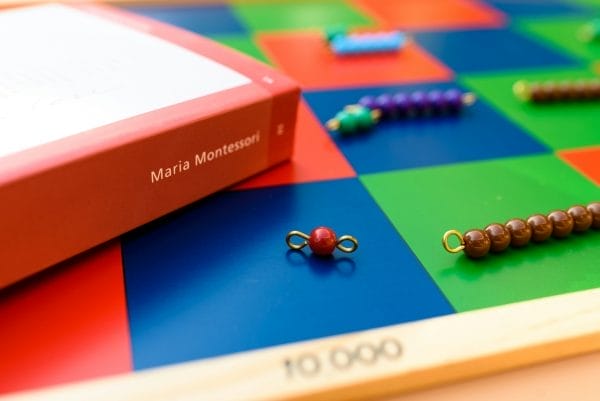Maria Montessori: Her Life and Legacy
Maria Montessori was an Italian physician and educator, best known for the development of the educational philosophy that bears her name, the Montessori Method. Her innovative theory revolutionized early childhood education by focusing on the child as a naturally curious and self-motivated learner.
In this article, we will delve into who Maria Montessori was, explore her philosophy, examine her books, and reflect on her enduring impact on education.

Who is Maria Montessori?
![]()
Born on August 31, 1870, in Chiaravalle, Italy, Maria Montessori broke through gender barriers to become one of the first female physicians in Italy. Her work with children with disabilities and her scientific background led her to develop an educational approach that emphasized independence, hands-on learning, and a respectful understanding of each child’s individual development.
Maria Montessori’s journey into education began when she worked with children with special needs. She observed that these children, when given appropriate materials and the freedom to explore them, could learn much more than society expected. This revelation formed the cornerstone of her educational philosophy, which she continued to develop throughout her life.
Maria Montessori Philosophy
![]()
The theory of Maria Montessori is centered around the belief that children learn best when they are in an environment that supports their natural development. Her philosophy rests on several key principles:
- Respect for the Child: Montessori believed that children should be treated with respect and that their natural development should be trusted.
- The Absorbent Mind: She recognized that young children have an incredible capacity to absorb information from their environment, a trait she called the “absorbent mind.”
- Sensitive Periods: Montessori identified times in a child’s life when they are particularly receptive to learning certain skills, such as language or fine motor coordination.
- Prepared Environment: Montessori classrooms are carefully designed to encourage independence and allow children to engage with materials that are developmentally appropriate.
- Autoeducation: She believed that children are self-motivated to learn and will do so naturally if given the right conditions.
This child-centered approach to education encourages a love of learning and fosters a sense of independence and self-discipline in children.
Theory of Maria Montessori in Practice
![]()
In a Montessori classroom, you won’t find the teacher at the center of the room, giving instructions to a group of seated children. Instead, the classroom is a dynamic environment where children move freely, engaging with different learning materials. These materials are designed to be self-correcting, so children can learn through trial and error without direct intervention from the teacher.
The teacher’s role in this setting is to observe and gently guide children towards activities that match their developmental stages and interests. This approach helps children to become active participants in their learning, fostering independence and self-confidence.
Books by Maria Montessori
![]()
Maria Montessori was not only a dedicated educator but also a prolific writer. Her numerous books and articles provide insights into her educational methods and the philosophy behind them. Some of her most well-known works include:
- The Montessori Method: In this foundational book, Montessori describes the principles and practices of her innovative approach to education.
- The Secret of Childhood: Here Montessori delves into the developmental stages of children and how adults can support their natural growth.
- The Absorbent Mind: This book explores the concept of the absorbent mind and how children from birth to six years old learn about their world.
- The Discovery of the Child: Montessori outlines her methods of education, including the materials and activities that stimulate learning.
These books by Maria Montessori offer valuable insights for educators, parents, and anyone interested in the development of children.
Maria Montessori Quotes
![]()
Maria Montessori’s words continue to inspire and challenge educators and parents. Here are some powerful Maria Montessori quotes that capture the essence of her philosophy:
- “The greatest sign of success for a teacher… is to be able to say, ‘The children are now working as if I did not exist.’
- “Help me to do it myself.”
- “The first duty of an education is to stir up life, but leave it free to develop.”
These quotes reflect Montessori’s deep belief in the potential of each child and the role of education in unlocking that potential.
Impact of Maria Montessori’s Work
![]()
The impact of Maria Montessori’s work has been profound and long-lasting. Her educational method has spread globally, with thousands of Montessori schools established across the world. Montessori’s philosophy has influenced not only early childhood education but also elementary, middle, and high school pedagogies.
Research supports the effectiveness of the Montessori Method. Studies have shown that Montessori students often excel in academic and social skills compared to their peers in traditional educational settings. They tend to be more creative, responsible, and possess a greater love of learning.
Moreover, Montessori’s ideas about child development have infiltrated mainstream education, leading to broader acceptance of student-centered and hands-on learning practices. Her legacy lives on as educators and parents continue to seek ways to foster independence, curiosity, and a lifelong passion for learning in children.
Conclusion: The Enduring Influence of Maria Montessori
![]()
Maria Montessori was a true pioneer in the field of education. Her radical rethinking of how children learn reshaped the educational landscape, proving that respect for the child’s natural development leads to deeper and more meaningful learning. Montessori’s books and quotes continue to guide educators and parents, and her philosophy is as relevant today as it was over a century ago. The Montessori Method remains a beacon for those who believe in the power of education to transform lives, demonstrating that when we trust in the capacity of children to learn, we unlock a world of potential.





